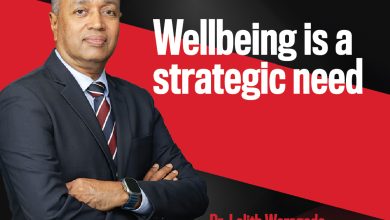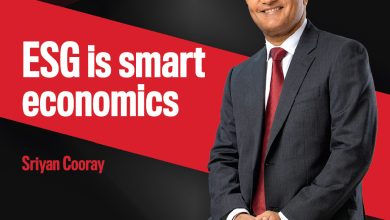CORPORATE CULTURE
Beyond the rhetoric
Thimal Perera

“A successful company is built on the foundation of great people. To attract and retain such talent, it is essential to cultivate a robust organisational culture,” says Thimal Perera.
He explains that corporate culture encompasses the shared values, beliefs, attitudes and behaviours that define an organisation, and guide its people: “It becomes the vibe of the company. These elements must align harmoniously to foster a cohesive and positive culture.”
Corporate culture must go beyond the rhetoric, he states: “The essence of a company’s culture lies in how well every employee understands the true meaning of corporate values and expected behaviours – and how much of these they incorporate in their day-to-day lives.”
KEY ELEMENTS Creating a positive environment that prioritises meaningful work and employee freedom while fostering a sense of psychological safety is imperative, Perera adds.
He elaborates: “Such an environment enables individuals to thrive and innovate. Integrating diversity, equity and inclusion (DEI) into the culture makes the workplace more engaging and inclusive. This approach leads to job satisfaction, and drives long-term employee and corporate success.”
EMPLOYEE ETHICS A shared work ethic can dramatically improve productivity and performance, according to Perera. He adds that fostering a culture of accountability, integrity and professionalism inspires employees to uphold high standards.
What’s more, he reiterates that leading by example and demonstrating trust are essential – and that open communication channels and transparency make way for discussing concerns.
“Recognising and rewarding individuals who exemplify a strong work ethic reinforces the value of dedication and commitment. Additionally, prioritising the work-life balance as part of the corporate culture, and offering growth and development opportunities, can encourage continuous improvement among employees,” he opines.
TOP-DOWN STRATEGY Perera states that “fair treatment fosters trust, loyalty and employee engagement, leading to higher morale and productivity. Unfair practices can result in mistrust, high turnover and inefficiency.”
This approach is a top-down strategy driven by the leadership team. People managers are critical, as employees often leave managers rather than companies. And Perera adds that training managers in unconscious biases and equitable practices is vital to ensuring fair treatment across the organisation.
Leadership is the driving force in establishing a fair work environment, and ensuring consistent application of policies and procedures. By prioritising fairness and equity, organisations can nurture a culture of respect and inclusivity, paving the way for sustainable success, he stresses.
Perera affirms that “if leadership is committed to corporate values, employees will follow suit. Therefore, senior management should actively engage with employees, listen to their concerns and solicit feedback to address issues.”
MEASURING EFFECTIVENESS He recommends that organisations implement several strategies to measure the effectiveness of their corporate culture in promoting respect and fair play, one of which includes regular surveys or assessments that are fundamental to gauging employee perceptions of the organisational culture.
Monitoring key performance metrics such as productivity, innovation and business results can provide insights into the impact of culture on both employee morale and business performance, he elaborates.
Perera notes that it’s vital for a clear action plan at leadership level to identify and address gaps: “Failure to do so can lead to issues festering and spreading across the organisation. Corporates can address these challenges promptly and effectively by taking decisive action.”
MORALE AND PRODUCTIVITY Pointing out that a strong corporate culture creates a sense of belonging, purpose and fulfilment, he continues: “A supportive and collaborative work environment motivates employees to perform optimally. Engaged employees feel valued and connected to the organisation, and are more likely to be productive and contribute to its success.”
“Motivated employees are creative; they drive innovation, which fosters growth and success. This approach improves productivity, and ensures that employees enjoy their work and are committed to achieving corporate goals,” he concludes.





